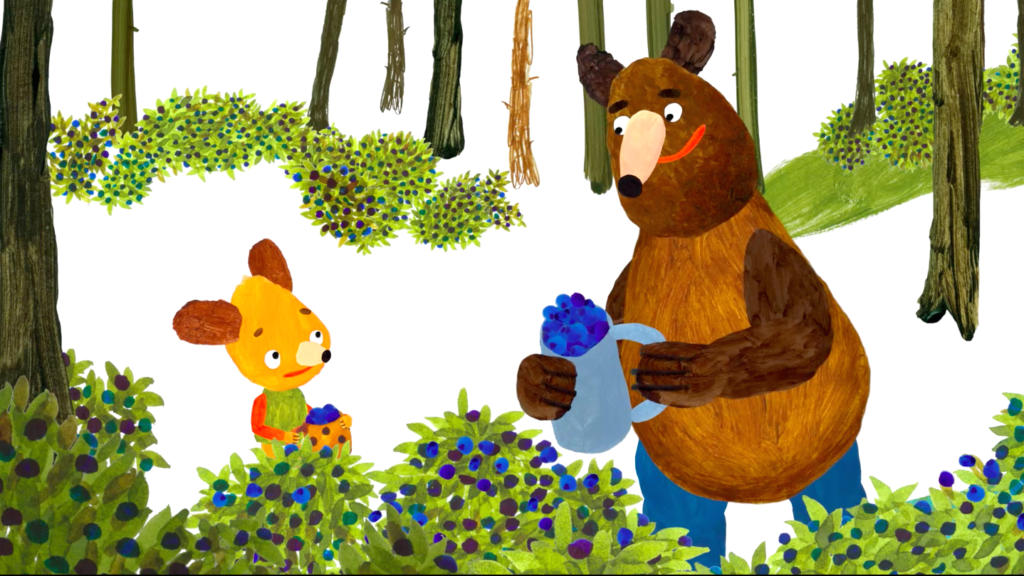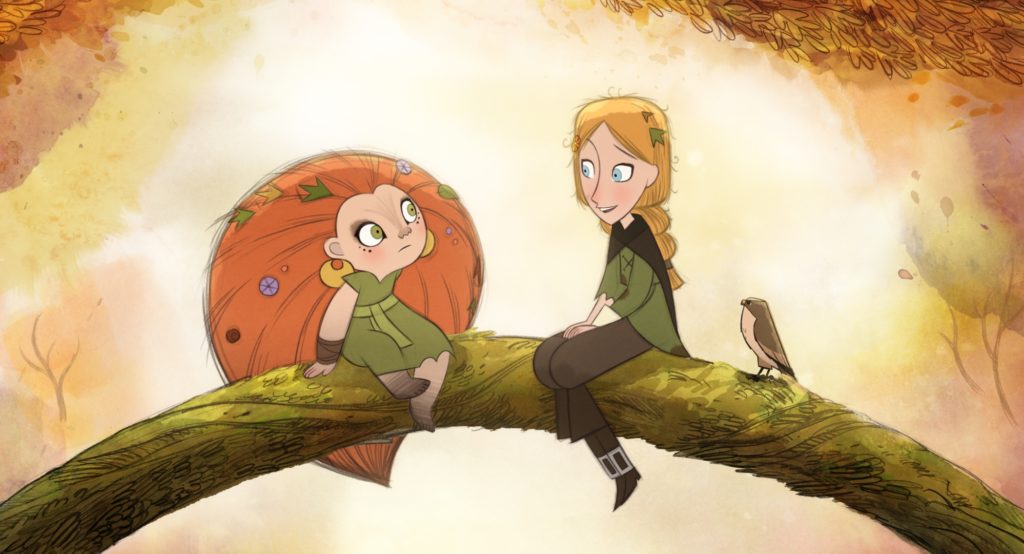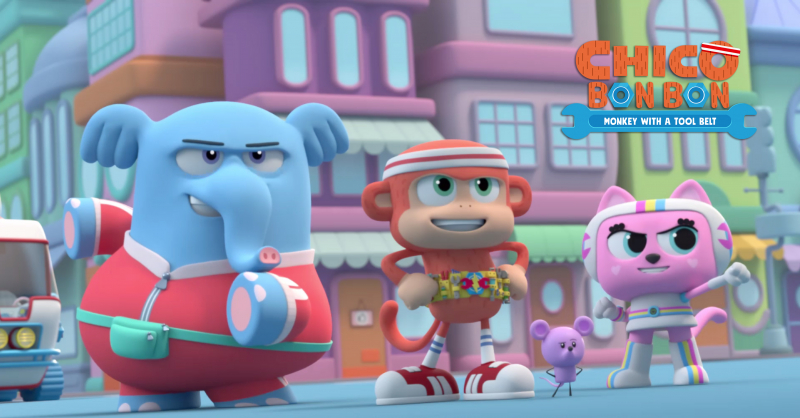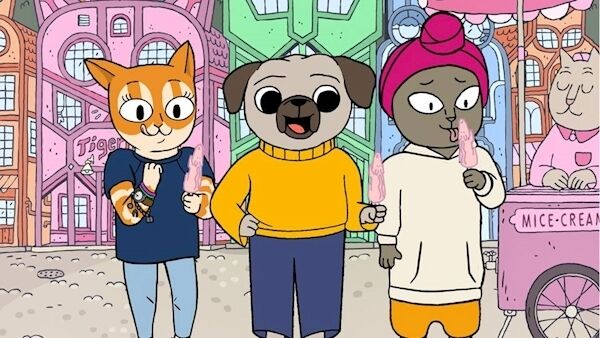
Life during lockdown has been as busy as ever for Ireland’s animators as they service broadcasters, film companies, and advertising, writes Esther McCarthy
For artist Aria Ungerer, life during lockdown and working from home have given her a special opportunity – to focus on a project planned with her late father, Tomi Ungerer.
Working from her East Cork home, Aria has founded Pictor Productions to develop her first animation series for TV, an adaptation of her dad’s famous children’s novel, Flix.
She also manages his estate and curates his exhibitions, but as that work became delayed, she was able to focus fully on the show. Like many working in the corona-proof animation sector, bringing cartoon characters to the world via their spare rooms, she has been busy and industrious.
Working remotely is very animation-industry friendly, while a global shutdown of live-action filming meant that demand for animation from streamers has soared. For months, it was the only form of large or small-screen production carried out in Ireland.
“I think having things to be focused on and busy with was very helpful in this time of not knowingness,” says Ungerer of the project she first developed with her dad before his passing last year.
“I found it very helpful, work-wise, just not to be coming and going all the time. You can really get stuck into something and not be distracted in the same way. I think the only challenge about working from home at the moment is that your home is then 100% of the time, your hub for everything – living, working, relaxing.”
She is just one of thousands of people in Ireland’s thriving animation industry who are continuing to be creative while working in backrooms and bedrooms across the country.
“Unlike so many other sectors of the economy, animation lends itself to distance working and is still a viable industry despite the current crisis,” says Ronan McCabe of Animation Ireland.
“Our industry has long had a reputation for collegiality and by its very nature is co-operative on an international scale. Development continues apace and new shows and characters are being created.”
The fact that Irish animation is in such rude health also helped when it came to diversifying fast. The sector has been in rapid growth for the past number of years, last year accounted for almost 50%of all production spending here and is a major global player.
For John Rice and his team at Jam Media, Covid-19 came at a crucially busy time. Jam was just about to deliver the final 20 episodes of its award-winning series, Jessy and Nessy, for Amazon Prime, and deadlines loomed. The Kerryman also had to cancel his beloved Dingle Animation Festival just a week before it was due to begin in early March, as restrictions looked more likely.
“We’ve delivered our Amazon Prime series, Jessy and Nessy, by way of people’s bedrooms, really,” he says.
“We were a completely virtual studio. And the amazing thing is that it came in on time and on budget and it really has me scratching my chin, wondering why do I need two city centre studios.
“It’s certainly feasible to have people working from home, part of the production is certainly achievable. You’ll always be in a room and collaborating on developments and visualising a show, but I think the actual production of it in animation terms could be carried out in people’s back rooms.
“We’ve got a great head of technology here and he’s able to work with everybody to get the whole remote studio setup. We have a piece of software that’s easily distributed that we created ourselves that everybody could feed into using the cloud. I mean, it was disruptive, but everybody caught up in the end and we hit the deadline.”
A blend of animation and live action, Jessie and Nessy tells the story of a little girl who has a magic pair of glasses. When she puts them on, her imaginary friend The Loch Ness Monster appears, and her whole world is transformed. They set out to find the answers to questions like how to airplanes stay in the sky?
“They rarely come up with the right answer. It’s often the wrong answer, but it’s the journey,” says Rice. “It’s all digital. The whole pipeline is digital. It’s probably not too much of a difference in the sense that an animator will come into a studio and be sociable, then sit down and put on their headphones and listen to great albums. You kind of lose yourself as an animator. Sitting around, listening to music, making things move, that’s what it is.
“When you break it down, you’re given a scene and you’ve got to complete that scene. The direction has been already worked out. So you just follow the direction that you’re given and then it gets composited and coloured up and the effects are laid out over it.”
Has the pandemic accelerated an already mammoth demand for stories? “Oh yes. I think I reached the end of Netflix the other night. Red balloons came down from the ceiling! Stories are really just being consumed across all demographics – preschoolers, pensioners. It is a time where demand has certainly has been accelerated because of the virus. But all the networks have seen ad spending decrease. Even though more people are watching an awful lot more, there’s less money around to fund it.”
Other studios have taken on projects directly as a result of the pandemic. “We finished an ad campaign for An Post, about staying connected and sending letters,” says Dale Robinson of Treehouse Republic. “They wanted to get that out as soon as they possibly could and obviously you can’t get film crews to shoot anything at the time so they turned to animation. A lot of advertising that we’ve seen on TV has been animated.”

He and his team are currently developing a series for Czech TV and RTÉjr called Hungry Bear Tales, about two bears who are always looking for something to eat, and who frequently end up in crazy situations.
“We took it seriously from the get-go because we were starting a new project and just didn’t really want to have to do all this (move) right in the middle of it. So we took the initiative.”
For Robinson, the only potential pitfall to working from home has been an amusing one – when young eyes catch sight of his latest creation. “The kids come in and go: ‘What are you drawing? Can I draw as well?’ When they see colourful characters,” he smiles.
Animation Nation: Upcoming projects
Ireland’s animation studios and houses have been busy developing stories coming to a screen near you soon. Here are just some of their upcoming projects.
Cardel Animation: Pistacho (for pre-school). Pistacho is a shy and awkward eight year-old-boy who is passionate about dinosaurs. One day while playing hide and seek with his friends, he finds magic sunglasses that allow him to see people as animals.
Giant Animation: Remy & Boo. This will be the third series produced at Giant, and is being made in conjunction with Industrial Brothers and BoatRocker Media for NBC. The series is slated for release this year across traditional and on demand platforms.

Cartoon Saloon: Wolfwalkers (2020) The newest animated film from Cartoon Saloon and Melusine Productions, created and directed by Tomm Moore (The Secret of Kells) and Ross Stewart, will debut around the world later this year in theatres and as part of Apple’s premium film lineup. It’s a tale of witchcraft, wolves and an unlikely friendship.
My Father’s Dragon, a 2D animated family feature film from Oscar-nominated, Cork-born director Nora Twomey is in production for Netflix. It tells of a young runaway on an adventure to find a dragon.
Distillery Films: Sullivan Sails, developed with support from Screen Ireland. It encourages a love of adventure, exploration and imagination in young audiences, while introducing them to incredible facts about geography, the environment, and international cultures.
Ink & Light Films: Royals Next Door. A comedy series about Princess Stella and her family adjusting to ‘normal’ life after having to move out of their castle and downsize.
Pink Kong Studios: The Dead Hands of Dublin. Sometimes the only thing between life and death is a snap of your fingers. Narrated by Jim Norton. Magpie 6 Media: The Wee Littles. Like their young audience, the characters are very small, living, loving, and sharing in a great big world. The Wee Littles overcome life’s obstacles by using their imagination, positive support, and as always, humour.
Brown Bag
As one of the world’s most successful animation studios, with teams in Dublin, Toronto, Manchester, New York and Bali, Brown Bag was well placed to go remote when corona chaos hit.
Led by VP of Production Technology John Brady, they managed to support 1,100 staff working remotely as the pandemic struck.
With several projects on the horizon, including a new series of Vamparina for Disney and Chico Bon Bon for Netflix, timing was crucial.

“We’ve had no let up in our work, no let up in our productivity. We had people scheduled to start working, having to onboard them without them never getting inside the premises. Not meeting their peers, team building via Microsoft Teams. It’s been bizarre really,” he says.
In fact, it was because they were staffing up that they had a head start in terms of planning. “At the end of last year, we saw that we were going to exceed the headcount for the building. We had to plan a solution, we had to find a way of people working remotely. Our industry is very project specific. We will have 18-month projects, and roughly eight of them going simultaneously, so the times when we peak in staff can be quite short-lived.
“We investigated into how to connect people remotely. We explored all those things and along comes the pandemic and it forced us to roll it out straight away and not just roll it out for a select few, but for everyone. The key was organisation and flexibility.”
Ungerer’s Flix

Aria Ungerer says it’s been a labour of love adapting her late father, Tomi’s, work during the lockdown.
“We started working on this concept together back in 2015,” she says.
“We came up with this idea of how we could adapt the book. In the book you have the whole life story of this little pug dog who is born to cat parents, so he is the only dog in Cat Town. The book tells his whole life story, he ends up becoming the mayor and marrying another poodle from across the river in Dog Town.
“It’s all about their adventures. It’s really all about celebrating difference. We really want to, in a very fun, light-hearted, comedy driven way, celebrate being the odd one out. And we think that’s a theme that all kinds of communities can relate to.”
